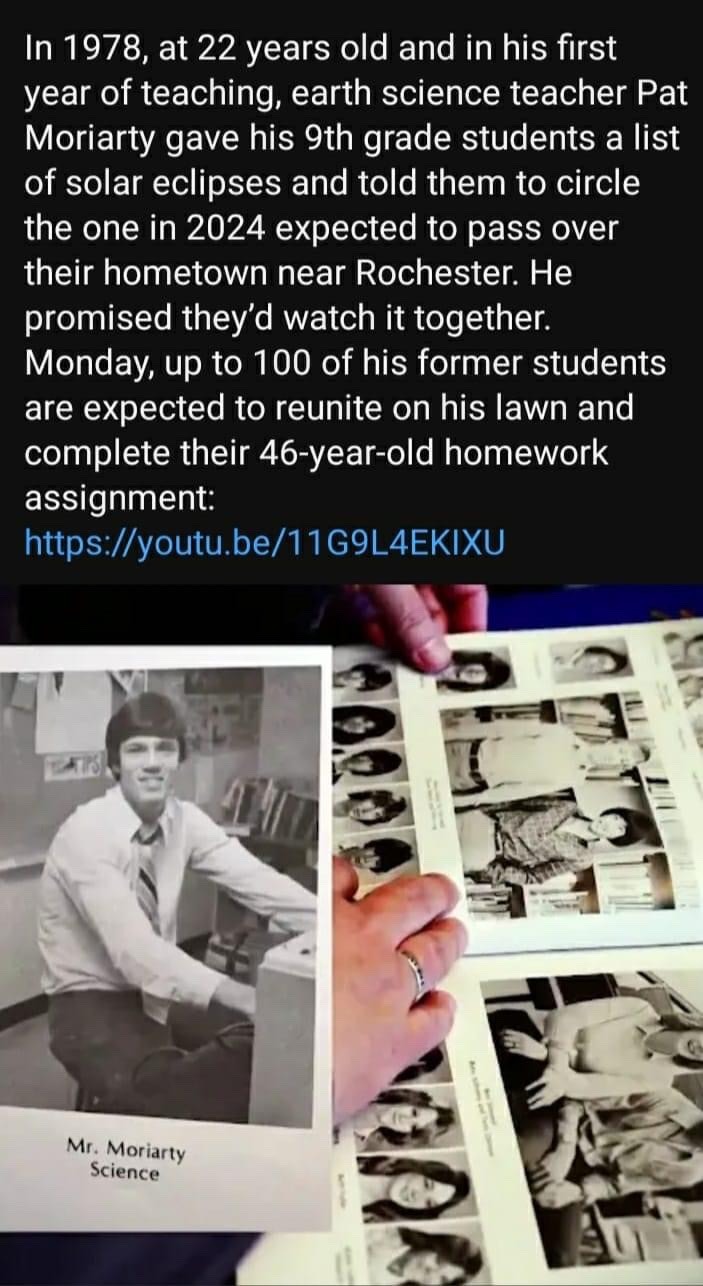Text
Is Israeli academia about to enter a whole new phase? All signs are that it already has. In the past few weeks, Haaretz spoke with more than 60 Israeli scholars from a wide range of disciplines and academic institutions, from young scientists and university presidents about their experiences with colleagues abroad since the war broke out in the Gaza Strip after Hamas' massacre on October 7.
They recounted dozens of incidents: cancellation of invitations to conferences, a freeze on their appointments in foreign institutions, rejection of scientific articles on political grounds, disruption of lectures abroad, cessation of collaborative efforts with colleagues abroad, refusal by such colleagues to take part in the promotion process their Israeli counterparts must undergo at local institutions, and even a sweeping boycott of local colleges and universities. The following examples, all from recent months and backed up by documents and emails, are being made public here for the first time. The plethora of events leaves no room for doubt: Israel is feeling the brunt of an unprecedented academic boycott, which is only gathering momentum.
…
It once seemed as if the social sciences and humanities are more vulnerable to political struggles. Indeed, such departments in Israel were familiar with the impact of the boycott, divestment and sanctions movement long before October 7. However, the cessation of collaboration – whether in conducting research, co-authoring articles or in other areas – is now being seen as a widespread phenomenon in all fields.
A few months ago, Nir Davidson, a physics professor at the Weizmann Institute of Science, suggested to an Italian colleague that they try together to request a grant from a competitive research foundation. "Because of the atrocities your country is perpetrating against innocent civilians, thousands of professors and researchers have signed a petition calling for all research collaboration to be blocked," the colleague replied, noting that he "fondly recalls" a visit he made to Israel in 2020, but adding, "I'm afraid that what your country has done and is continuing to do will never be forgotten or forgiven."
About a month ago, a scientist from Ben-Gurion University of the Negev was ejected from an international group that submits research proposals to the European Union in the realm of environmental studies. The explanation he was given by one of his colleagues was, "I'm really sorry, but I'm going to have to not select Israel as a partner for the project. In fact, some partners do not wish to be involved in the project if Israel is a partner, particularly given the current political context. I am truly sorry, and I hope that we will have the opportunity to work together on another research project. Thank you for your understanding and I wish you all the best for the future."
…
"I am writing to let you know that I have decided to step down from the Ph.D. committee [reviewing a student's thesis]," a foreign social sciences scholar wrote the Hebrew University recently. "Following the university's recent declaration of commitment to Zionism in the context of the war that is raging in Gaza, I feel I can no longer be associated with this institution. I have enjoyed working with you all and it is with a heavy heart that I am making this decision."
The "commitment to Zionism" the professor cited was part of the fierce public condemnation the university issued against sharp remarks by Israeli-Palestinian Prof. Shalhoub-Kevorkian, of its law faculty, against Israel's conduct in the war in Gaza. "As a proud Israeli, public, and Zionist institution," the university stated, it condemned her comments and suspended her, before reinstating her two weeks later.
The email from the foreign academic who asked to stop advising the Hebrew University doctoral student is only one example of an apparently growing phenomenon whereby scholars overseas no longer want to help prepare the next generation of lecturers and researchers at Israeli institutions: Sources at a few such institutions admit that they find it increasingly difficult to obtain the letters of evaluation from academics abroad that must be submitted in advance of discussions of staff promotions in Israel.
For the present, it looks as though the latter trend is particularly noticeable in the social sciences and the humanities: in sociology and anthropology, Middle Eastern studies and literature. But according to a source at one university, the field of law is also falling victim to such dwindling collaboration with foreign schools.
…
"If the Israeli government commits irrevocably to either a two-state (within 1967 borders) or one-state solution in which all Palestinians in both Israel and the occupied territories have equal rights to Israelis – I will be happy to engage with Israeli institutions," a senior researcher at a prestigious institution in Europe wrote recently, in response to a request to write an evaluation for an Israeli academic. "Until that day, no." Another European academic wrote: "I do not believe that this suffering of civilians can be justified and I believe that Israel is not acting in accordance with international human rights law. In light of that, I feel I cannot collaborate with any Israeli institution at the moment."
…
"The dam has burst," Drori declares now. "Talking about an academic boycott of scientists in Israel has become legitimate. It's a whole new world. We are in a very extreme situation, and I don't know whether and how it will be possible to reverse things. The boycott is severing our ability to be involved in the forefront of research. All scientific research that does not involve the international community is research that is less good. The severance from the world is suffocating us."
If the pool of international experts who are willing to cooperate with Israel does continue to shrink, Israeli academics will face discouraging alternatives: to approach less senior academics from less well-regarded universities (which, according to a knowledgeable source, is already happening in some cases), or to increase the proportion of assessments provided by local faculty – not a particularly palatable solution.
…
A number of universities and academic organizations in Belgium, Spain, Italy and Norway recently announced full boycotts or a suspension of ties with Israeli institutions until they receive clarifications with regard to topics ranging from the state of academic freedom on their campuses, to their moral, financial and material support for Israel's defense forces. For one, Ghent University recently requested such information from its counterpart in Haifa.
…
"The best-case scenario is that within a short time we will return to some sort of stability," says American studies professor Milette Shamir, vice president of Tel Aviv University and director of its international academic collaborations. "Our standing in the world will be rehabilitated and we will be able to return to the situation we were in, to very extensive international activity."
But Shamir acknowledges that she "doesn't know whether that scenario is realistic." Two weeks ago, she was in Australia to attend an academic fair at the University of Sydney. When she arrived, pro-Palestinian demonstrators shouted that Tel Aviv University shares in crimes against the Palestinians and that all collaborations with Israel should end.
"The worst-case scenario is that we are headed in the direction of South Africa [in the apartheid period]," she says, "with boycotts that keep mounting to the point of paralyzing the system. The result will be a mortal blow to Israeli academia. It will take on a provincial character and we will not be able to integrate into the forefront of the world's research."
— 'I Won't Work With You. You're Committing Genocide': Israeli Academia Faces an Unprecedented Global Boycott. Or Kashti, Haaretz, April 14 2024
6K notes
·
View notes
Text
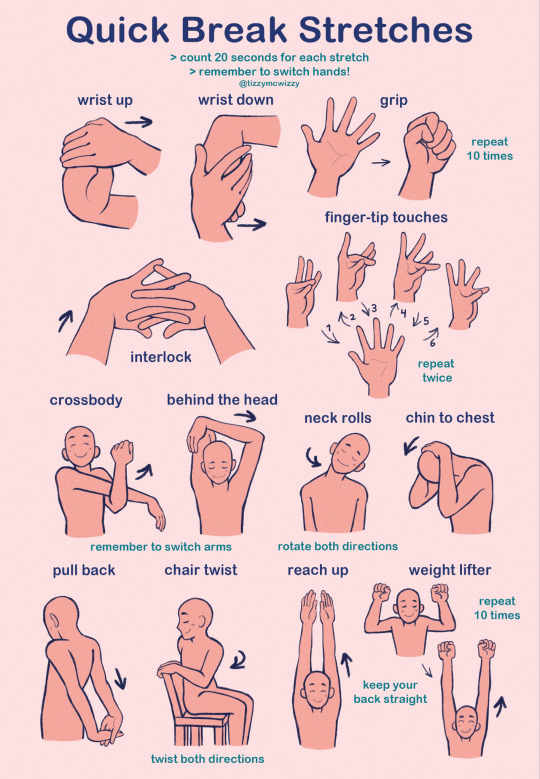
this is a poster i made for my call to action assignment in humanities! it's a bunch of basic and easy stretches for people who sit and work at a desk all day (me)
the idea is that you'd put the poster up above ur desk and do the stretches every 30 minutes or so,, the whole routine won't take more than about 6 minutes to complete and when done regularly it can prevent wrist, shoulder, neck and back pain! :)
all these stretches can be done while sitting (although i HIGHLY recommend you stand up and move around while taking a break from working)
you can get a free digital copy of this poster here on my gumroad!
64K notes
·
View notes
Video
this is like just a fourth of a whole musical medley addressing that you can’t live like the simpsons anymore. harsh :(
88K notes
·
View notes
Text
My brain: You have so many tight deadlines. So many things on your weekly schedule. So many important jobs. You have to get important work done!!!
My hands:
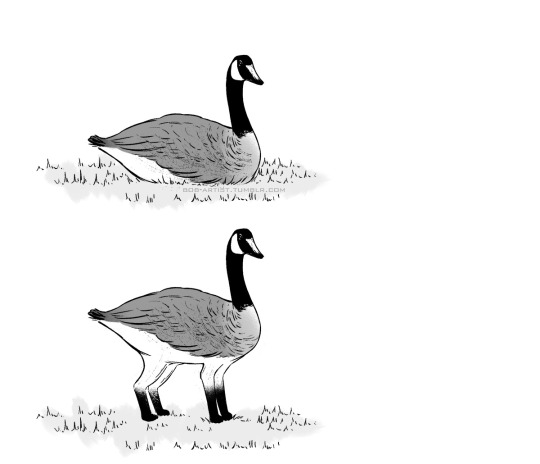

111K notes
·
View notes
Text


JOHN WICK: CHAPTER 3 - PARABELLUM (2019)
SHADOW THE HEDGEHOG (2005)
6K notes
·
View notes
Text
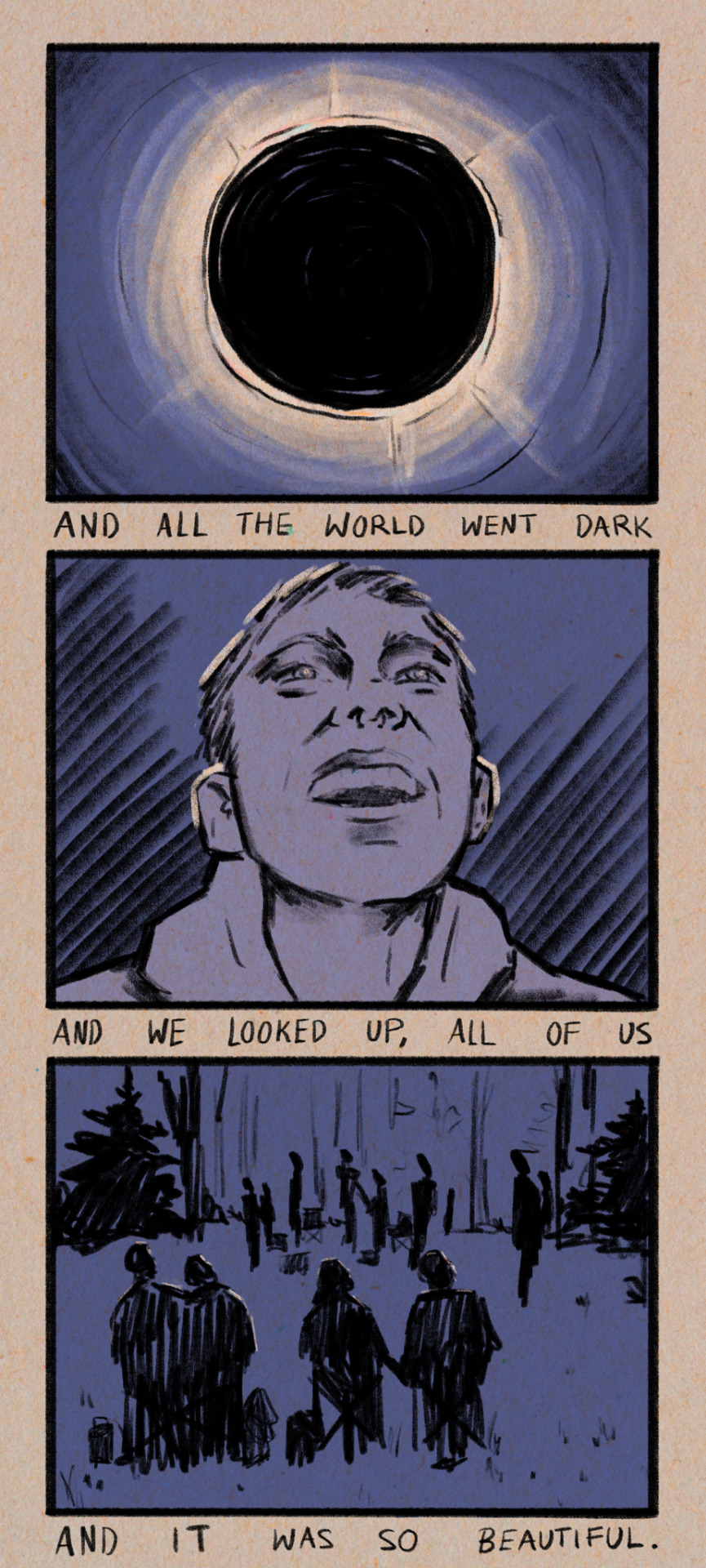
little thing about seeing the eclipse with my family and some kind strangers
16K notes
·
View notes
Text
Seriously they release new animals every week what the hell is this
13K notes
·
View notes
Text
i think it's fucked up that there are plants that decided they wanted to eat meat
223K notes
·
View notes
Text
So this was originally a response to this post:
****

****
Which is about people wanting an AO3 app, but then it became large and way off topic, so here you go.
Nobody under the age of 20 knows how to use a computer or the internet. At all. They only know how to use apps. Their whole lives are in their phones or *maybe* a tablet/iPad if they're an artist. This is becoming a huge concern.
I'm a private tutor for middle- and high-school students, and since 2020 my business has been 100% virtual. Either the student's on a tablet, which comes with its own series of problems for screen-sharing and file access, or they're on mom's or dad's computer, and they have zero understanding of it.
They also don't know what the internet is, or even the absolute basics of how it works. You might not think that's an important thing to know, but stick with me.
Last week I accepted a new student. The first session is always about the tech -- I tell them this in advance, that they'll have to set up a few things, but once we're set up, we'll be good to go. They all say the same thing -- it won't be a problem because they're so "online" that they get technology easily.
I never laugh in their faces, but it's always a close thing. Because they are expecting an app. They are not expecting to be shown how little they actually know about tech.
I must say up front: this story is not an outlier. This is *every* student during their first session with me. Every single one. I go through this with each of them because most of them learn more, and more solidly, via discussion and discovery rather than direct instruction.
Once she logged in, I asked her to click on the icon for screen-sharing. I described the icon, then started with "Okay, move your mouse to the bottom right corner of the screen." She did the thing that those of us who are old enough to remember the beginnings of widespread home computers remember - picked up the mouse and moved it and then put it down. I explained she had to pull the mouse along the surface, and then click on the icon. She found this cumbersome. I asked if she was on a laptop or desktop computer. She didn't know what I meant. I asked if the computer screen was connected to the keyboard as one piece of machinery that you can open and close, or if there was a monitor - like a TV - and the keyboard was connected to another machine either by cord or by Bluetooth. Once we figured it out was a laptop, I asked her if she could use the touchpad, because it's similar (though not equivalent) to a phone screen in terms of touching clicking and dragging.
Once we got her using the touchpad, we tried screen-sharing again. We got it working, to an extent, but she was having trouble with... lots of things. I asked if she could email me a download or a photo of her homework instead, and we could both have a copy, and talk through it rather than put it on the screen, and we'd worry about learning more tech another day. She said she tried, but her email blocked her from sending anything to me.
This is because the only email address she has is for school, and she never uses email for any other purpose. I asked if her mom or dad could email it to me. They weren't home.
(Re: school email that blocks any emails not whitelisted by the school: that's great for kids as are all parental controls for young ones, but 16-year-olds really should be getting used to using an email that belongs to them, not an institution.)
I asked if the homework was on a paper handout, or in a book, or on the computer. She said it was on the computer. Great! I asked her where it was saved. She didn't know. I asked her to search for the name of the file. She said she already did that and now it was on her screen. Then, she said to me: "You can just search for it yourself - it's Chapter 5, page 11."
This is because homework is on the school's website, in her math class's homework section, which is where she searched. For her, that was "searching the internet."
Her concepts of "on my computer" "on the internet" or "on my school's website" are all the same thing. If something is displayed on the monitor, it's "on the internet" and "on my phone/tablet/computer" and "on the school's website."
She doesn't understand "upload" or "download," because she does her homework on the school's website and hits a "submit" button when she's done. I asked her how she shares photos and stuff with friends; she said she posts to Snapchat or TikTok, or she AirDrops. (She said she sometimes uses Insta, though she said Insta is more "for old people"). So in her world, there's a button for "post" or "share," and that's how you put things on "the internet".
She doesn't know how it works. None of it. And she doesn't know how to use it, either.
Also, none of them can type. Not a one. They don't want to learn how, because "everything is on my phone."
And you know, maybe that's where we're headed. Maybe one day, everything will be on "my phone" and computers as we know them will be a thing of the past. But for the time being, they're not. Students need to learn how to use computers. They need to learn how to type. No one is telling them this, because people think teenagers are "digital natives." And to an extent, they are, but the definition of that has changed radically in the last 20-30 years. Today it means "everything is on my phone."
47K notes
·
View notes
Photo

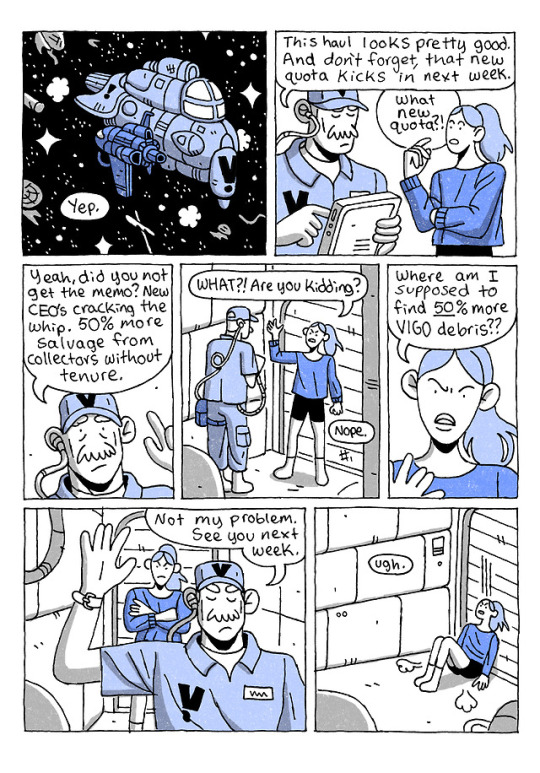
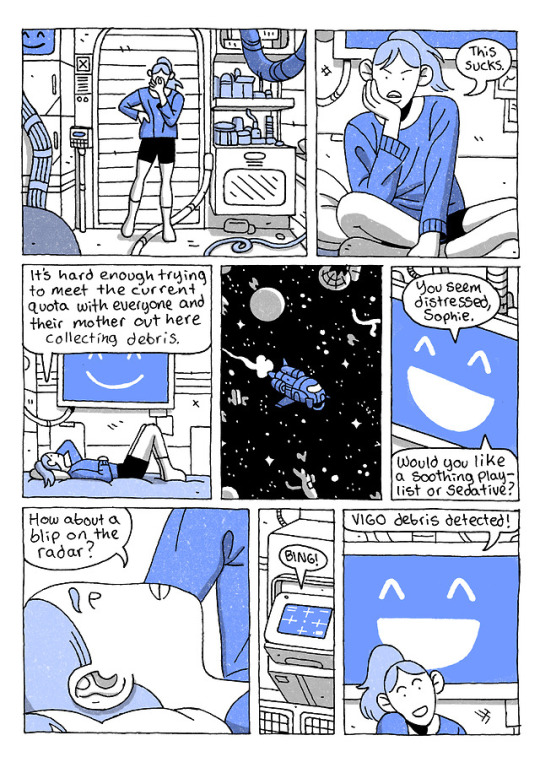
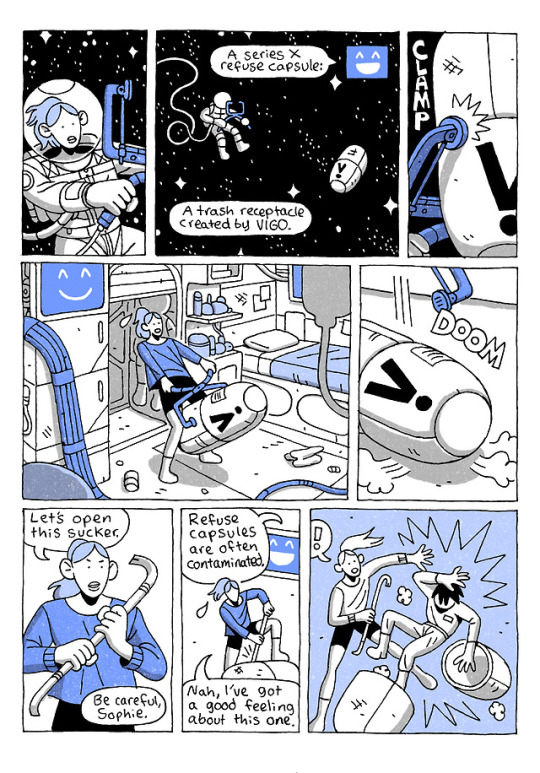
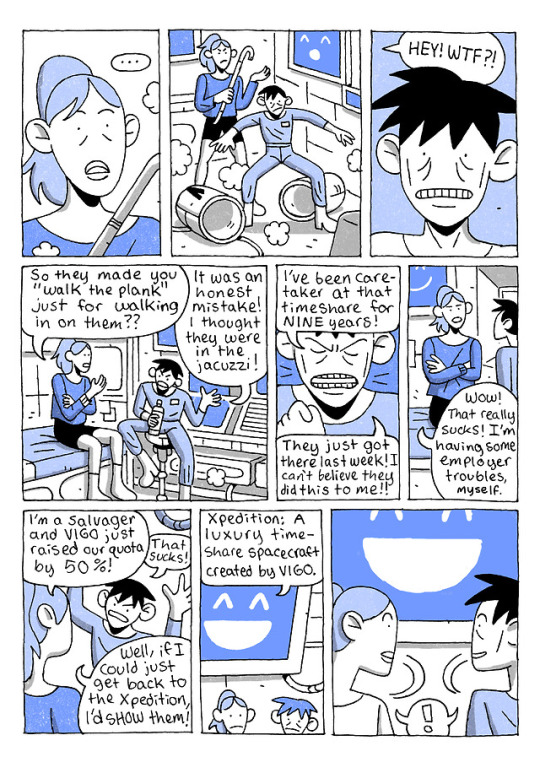
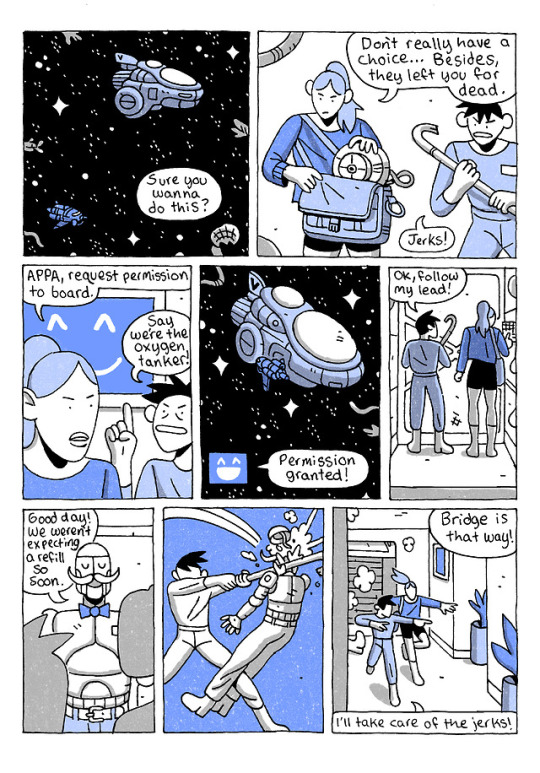
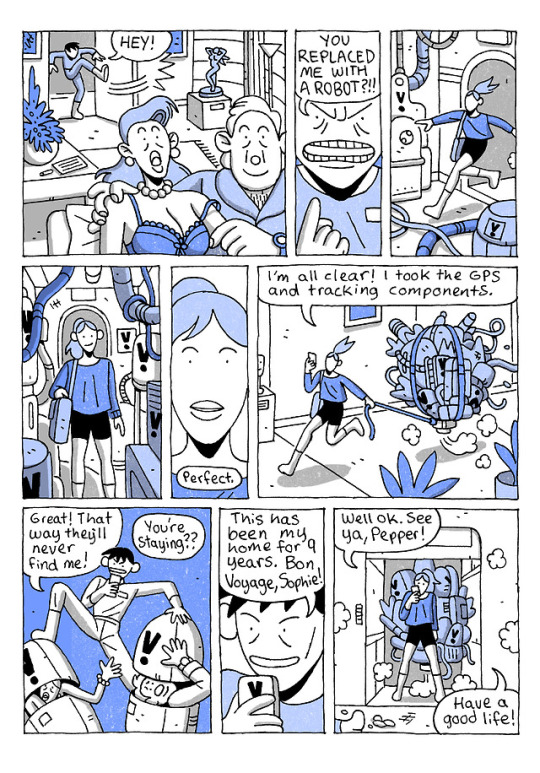
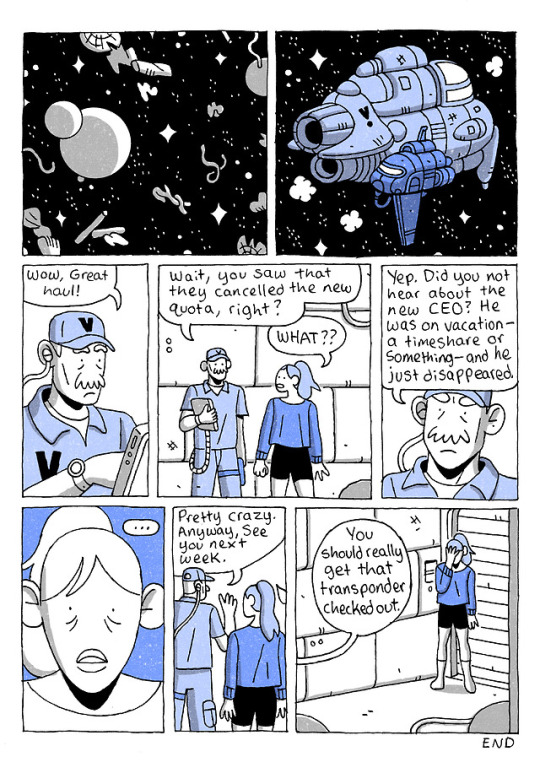
“Salvage” created for Critical Chips 2, published/edited by Zainab Akhtar~
70K notes
·
View notes
Text
The problem with both of my parents, one of my siblings, and many of my friends being lawyers is that we do a lot of shop talk, often while chatting on the phone. And so it feels very natural to end a phone call with, "I think I'll file a motion on it. Okay. Before close of businesses today. Have a great day. Love you, bye."
Which is not the correct way to end a phone call with opposing counsel
4K notes
·
View notes








